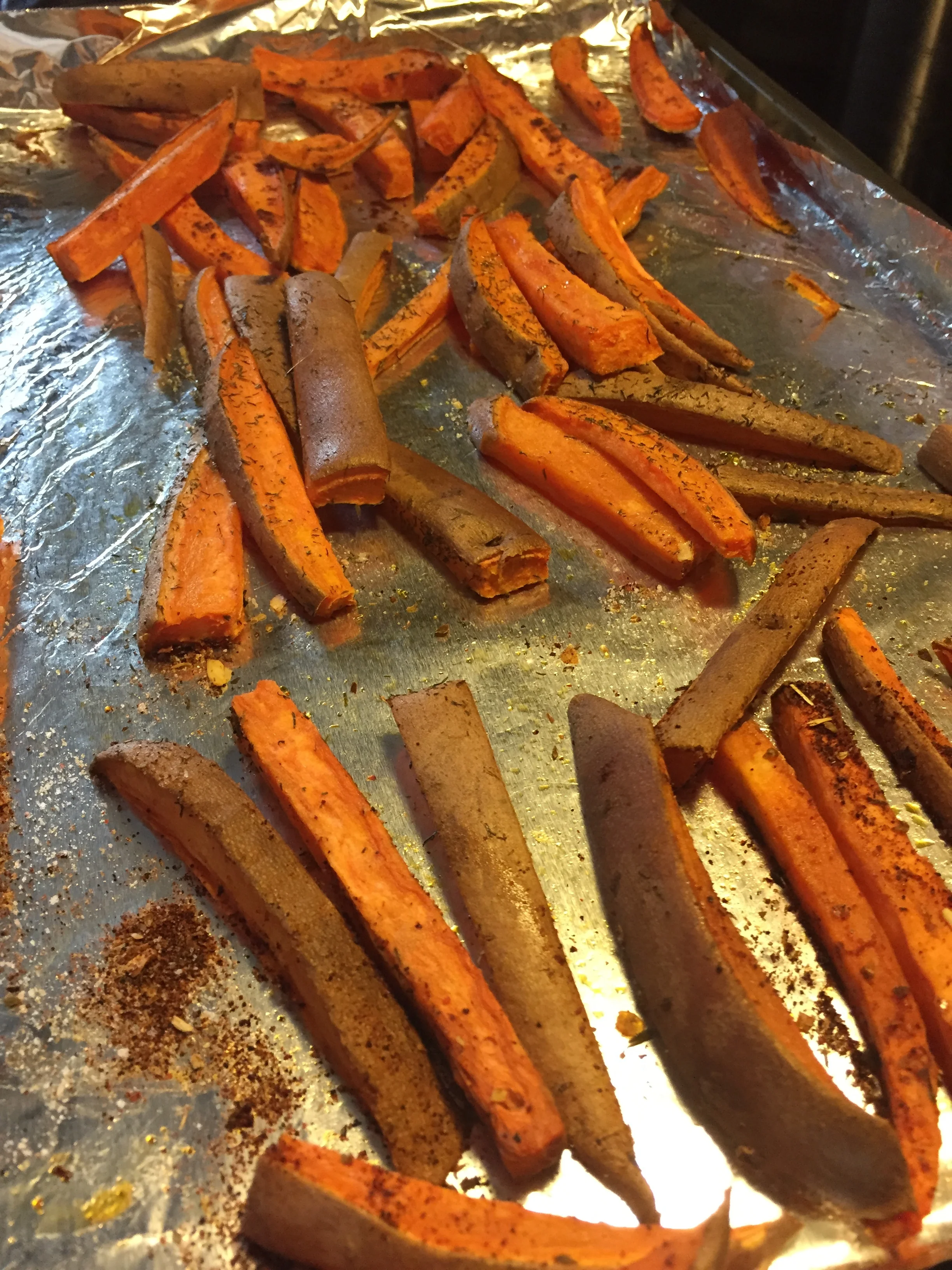What is whole food nutrition?
Whole food nutrition is the concept of curating your diet - the things you eat the most - from foods found in nature, and using to the fullest extent possible for maximum benefit. This means purchasing or growing fresh fruits and vegetables in an unprocessed form - the less handled, the better. This idea capitalizes on the farmer and his/her farming practices to produce the highest quality product possible - minimizing harmful chemicals found in fertilizers and pesticides, while preserving and investing in nutrient rich soil, and ethical farming practices. The gold standard here is organic farming. Purchasing organic foods can be quite costly - so, in this program we will steer you toward making informed decisions on when to go organic or not (termed “conventional”). Whole food nutrition comes from nature - not a machine. You can see clearly where a fruit or vegetable received its nutrients (a stem or seed).
Whole food nutrition is largely plant based - but we add to this high quality meat, poultry and seafood. Again, the idea here is to know your source - grass-fed or organic meats, wild caught fish will increase the nutrients found in the foods, while minimizing the risk of added chemicals, substances and unethical farming. We generally recommend a reduction in dairy as well when transitioning to a whole food diet; you will occasionally find butter and some select cheese in our recipes. These are great additions to have on occasion - but not a base in daily meals.
While “processing” your own fruits and vegetables may seem like more work (or time) - it is worth it! The flavors are so much more accented when using fresh ingredients, and you control the quality. Often, it is more cost effective to eat whole at home, too.
We add a few key nutrients and foods here that would take a great feat to process - so these are good to buy pre-made. Just look at the ingredient label - we are looking for single ingredient products here - no added fillers, flavors or chemicals.
Mason jars in our home for bulk products: cacao nibs (unprocessed cocoa), shredded coconut, sunflower seeds, flax seeds, chia seeds, raw almonds). We keep these handy - on the counter, easy to sprinkle in a shake, on a salad or on top of dinner for a nice crunch! Healthy fats, protein, fiber and antioxidants!
Examples of whole food nutrition:
Buying whole sweet potatoes, chopping into spears, seasoning and baking for sweet potato “fries” - instead of the packaged versions with processed sweet potato reformatted with added fillers, flours, preservatives and sugar.
Sweet potato fries - as simple as slicing a sweet potato, tossing with olive oil and seasoning to bake! Try a chili spice, dill, cumin or curry on your next batch!
You may have heard of a few other key terms related to this idea of whole food nutrition - but the concept has been around since Hippocrates coined the phrase “Let food be thy medicine, and medicine be thy food”
Paleo Diet
Slow Food Movement
Plant-based diet
Food is Medicine or Food as Medicine
We all can think of a food that has a reputation for something - but did you know many foods have fun facts and key qualities that make them unique?
Think about prunes - dried plums - they are known for what? Great for constipation - to get the bowels moving, right? What a great thing to be known for! Well, the truth is I can think of about 5 other things that are way more powerful for proper transit time. And, there are many foods that can be used “medicinally” or “therapeutically” by this same concept. Also, remember - this concept can go either way. The presence of a certain food or foods can cause disease just as much as the absence of a food can. So while we will focus on things to add in this program - for health benefits - also realize we need to address the foods that are of detriment to your health if not removed.
Try removing something processed for something “whole” this week! And remember, we are NOT referring to “whole grains” - in fact, the opposite. Grains are highly processed and there is some evidence that eating them whole is more detrimental than eating them white (think brown rice vs. white rice). More on that later! Stick to fruits, vegetables, nuts and seeds for this whole lesson!

